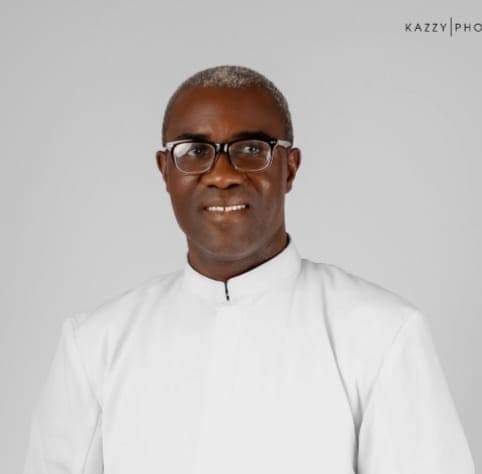
The Loss of the Sacred
Fr. Richard OMOLADE
“My house shall be called a house of prayer, and you have turned it into the den of robbers.” These words of Jesus ought to haunt every Christian, but it seems many of us are suffering from Biblical amnesia or maybe it is selective forgetfulness. This is the willful effort to remember only what we want to remember and be indisposed to remember what we don’t want to remember. Otherwise, how do you explain the fact that there is blatant disregard for the sacredness of the Church today? If the words of Jesus no longer echo in our ears, how will they lift our souls?
The Church is a place of encounter, it is a sacred place that makes possible a reverential encounter between God and his people. Due to the activities ordinarily associated with the Church, those who are well disposed are able to enter into communion with God. Some of the activities that make the Church sacred and an enabling environment for divine visitation and encounter include prayer, singing, other sacred rituals and moments of silence for reflection and interior disposition. Today, Silence has all but disappear. The people of our time seems to be allergic to silence. Hence, many are not able to be in touch with the Centre of their being. This loss of silence has denuded our worship and worship space. The place where many gather today can no longer be seen as sacred even when we call it so. Many of these so-called worship Centres are house of fun and entertainment arena. In these arena, it is the glitz that matters, the noisier the better. To be quiet must therefore feel uncomfortable and wrongly classified as being dull and without life. Yet, silence must be accorded its place in our life and in our worship.
Quality silence ushers us into the presence of the divine. It helps to reflect and gaze in wonder at the mystery of our own life and the mystery of God. The moment of silence we create through conscious effort exposes us to the depth of experience where face to face with the author of life we gain self-awareness and better understanding of our true selves. Silence is a powerful tool in human relationship and only a few people understand its usefulness. Silence is also an essential tool in our relationship with the divine and many are not capable of it. Many religions are essentially about the relationship between the divine and human beings. Since it involves a being of immense proportionality and greatness, human beings must purse before the divine and contemplate him first before engaging in verbal communication.
But how are we to understand the words of God is we cannot tolerate his silence? How are we going to be still in his presence, if our life is essentially disordered, full of distractions and noise? These are some of the problems plaguing us as we attempt to encounter God through our worship.
In the liturgy of the Church, words have their place, so also gestures. We pray with folded hands, we kneel and stand, we bow and genuflect. These are powerful gestures and windows to the divine milieu we are graced to be given access to. But what do we find in our Churches today? Noise, business chatters, gossips, fashion reviews and tendentious claims. Those who attempt to embrace God must come empty and prepared.
Our preparedness demands that we think of what we are going to do in the Church before we get there. Once this is done, once we get to the presence of God, we need to shut the outside world out and be present to the one who fills that sacred place. And people need to get to Mass on time and allow themselves to settle down before Mass begins. At this time, we need to say our prayers before Mass, come to terms with our intentions for the Mass, come up with the people we want to pray for and unite ourselves with other intentions of the Mass.
Once the Mass starts, nothing else should matter to us except the Mass itself. This is the sacred moment God comes to us and we should encounter Him during the different moments of the Mass, for instance when we beg for his mercy or as He speaks to us through the readings or the priest and finally as He nourishes us with Himself. Yet many are not able to encounter God because of the noise in their hearts and in their lives. It is this loss of silence that has turned the Mass for many into dull and empty ritual. Yet, “bidden or not bidden, God is always present.” Pastors of souls and leaders at the sacred liturgy must ensure that music, that is Church music is not turned to carnival music. We do not always need loud or fast music. Gyration has its proper place, not in the Church. There is still something beautiful about cool music, something transformative about “quiet music” and until we discover these treasures, we will continue to be saturated with euphoric music that drains us of strength and fulfillment but saturate us with fleeting satisfaction and temporary and ecstatic worldly upliftment.
In the final analysis, the prescription holds true and useful that says: “Before Mass, talk to God, during Mass, allow God to talk to you and after Mass, talk to one another.” Anything else is a distraction and unnecessary.



Leave a Comment